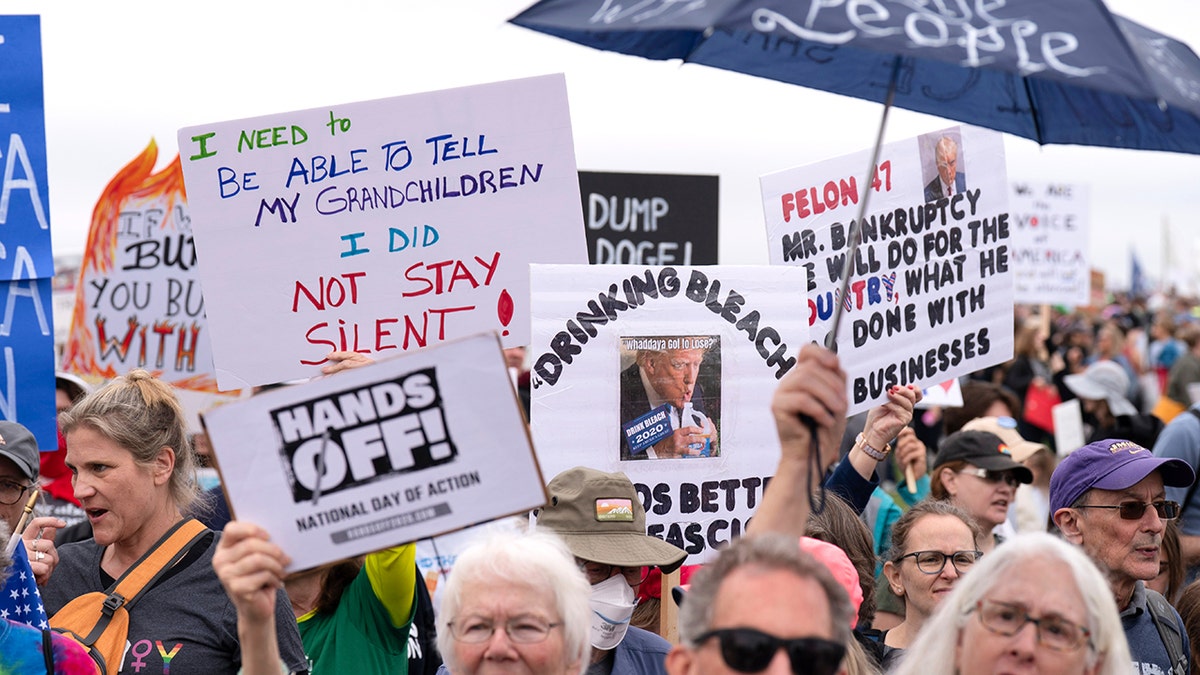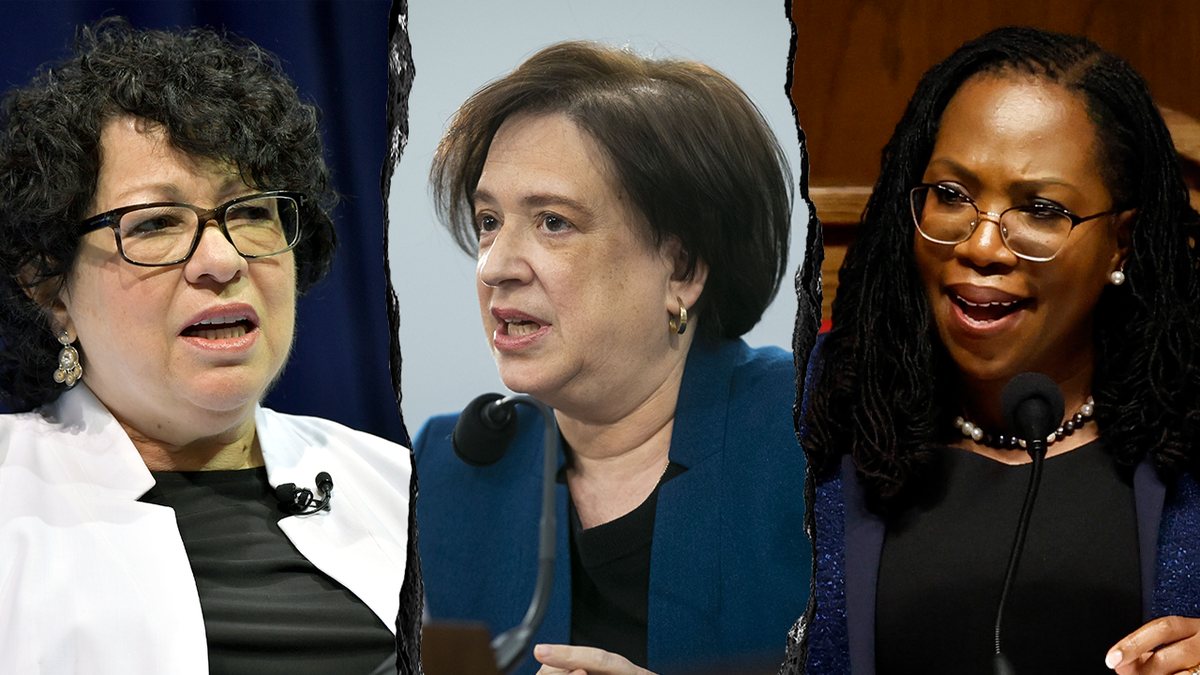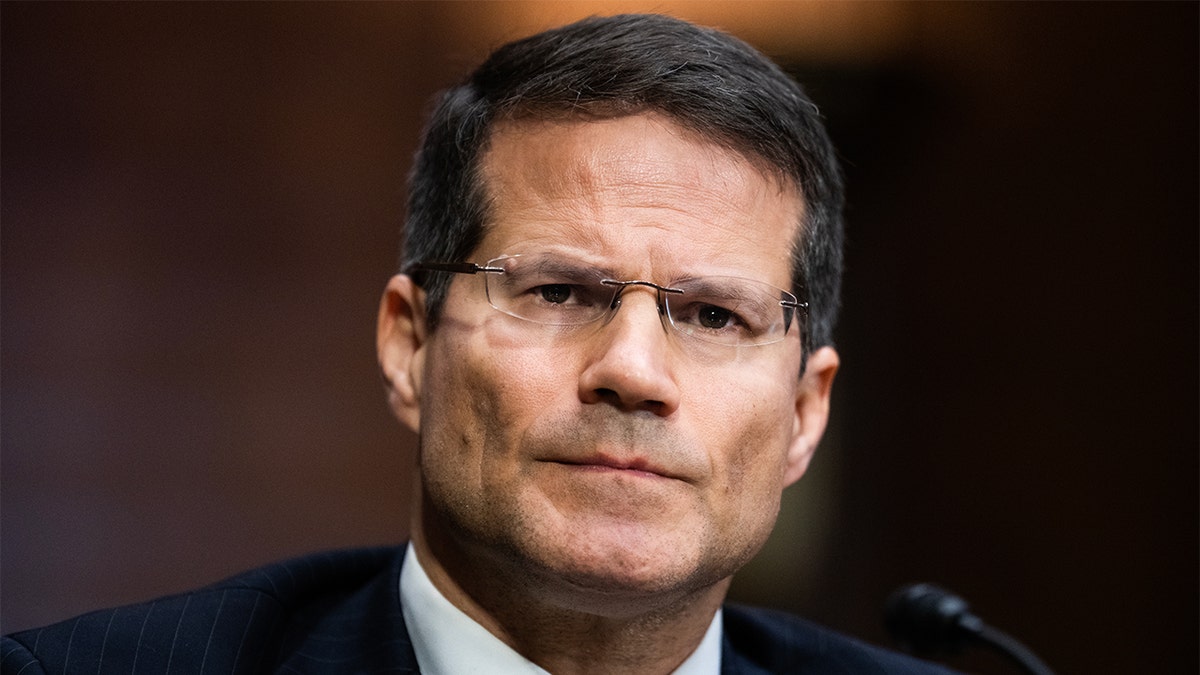Trump DOJ fights to rein in judicial power at Supreme Court
Fox News' David Spunt reports the latest on the case. Fox News contributor Jonathan Turley also weighs in during 'The Faulkner Focus,' and discusses the latest on backlash over a Wisconsin judge's arrest.
The Supreme Court struggled to reach consensus Thursday in oral arguments involving President Donald Trump's effort to end birthright citizenship, in a case that could more broadly call into question the powers of lower courts to block executive branch actions.
It’s unclear when the justices will rule, but their decision to fast-track the case means an opinion or order could come within weeks – or even days.
The focus in the courtroom ostensibly was the birthright citizenship executive order Trump signed on his first day back in office. But arguments largely focused on whether lower courts that issued universal injunctions blocking the order acted beyond the scope of their authority, as the Trump administration argued in its Supreme Court appeal earlier this year.
Justices across the ideological spectrum appeared to agree Thursday that the use of universal injunctions has surged in recent years under both Democratic and Republican presidents. But after more than two hours of oral arguments, they seemed split on how, exactly, to proceed.

Demonstrators hold up signs during a "Hands Off!" protest against President Donald Trump at the Washington Monument in Washington, Saturday, April 5, 2025. (AP Photo/Jose Luis Magana)
"As far as I see it, this order violates four Supreme Court precedents," Justice Sonia Sotomayor told U.S. Solicitor General D John Sauer, noting that blocking or limiting lower court injunctions could invite hundreds or thousands of new individual lawsuits.
Others on the court suggested that federal judges have been given too much runway to halt the orders of a sitting president.
"The practical problem is that there are 680 district court judges, and they are dedicated and they are scholarly," said Justice Samuel Alito.
"And I'm not impugning their motives in any way," he added. "But, you know, sometimes they're wrong."
Kelsi Corkran, representing private plaintiffs and advocacy groups, proposed a middle-ground approach: allowing universal injunctions when government actions violate fundamental constitutional rights.
If lower courts do get "ahead of their skis," she said, appeals courts can still rein them in, just as they do now.
No easy solution to resolve the thorny legal problem presented itself, and justices grappled with a litany of related procedural questions in debating whether to scale back nationwide injunctions – and if so, what legal standards should be applied.
APPEALS COURT BLOCKS TRUMP ADMIN'S DEPORTATION FLIGHTS IN ALIEN ENEMIES ACT IMMIGRATION SUIT

Supreme Court Justices Sonia Sotomayor, Elena Kagan, and Ketanji Brown Jackson are seen in this split image. (Getty Images)
U.S. Solicitor General John Sauer used the bulk of his opening arguments Thursday to reiterate the government's view that universal injunctions exceeded lower courts’ Article III powers under the Constitution, noting that the injunctions "transgress the traditional bounds of equitable authority," and "create a host of practical problems."
Universal injunctions "require judges to make rushed, high-stakes, low-information decisions," he said. "They operate asymmetrically, forcing the government to win everywhere," and "invert," in the administration’s view, the ordinary hierarchical hierarchy of appellate review. "They create the ongoing risk of conflicting judgments."
During a five-minute rebuttal period, Justice Sotomayor questioned Sauer on what authorities the courts, under their argument, would have in this scenario.
"Your theory here is arguing that Article III and principles of equity [clause] both prohibit federal courts from issuing universal injunctions to have your argument," she said, adding: "If that's true, that means even the Supreme Court doesn't have that power."
Justice Elena Kagan, meanwhile, pointed out the practical challenge of expecting the Supreme Court to weigh in on every issue now handled by lower courts, which have already faced hundreds of federal lawsuits during Trump’s second term.
Kagan also noted to Sauer that the Trump administration has lost every federal lawsuit challenging the birthright citizenship executive order, including under judges Trump appointed during his first term.
"This is not a hypothetical; this is happening out there," she told him. "Every court is ruling against you."
"If I were in your shoes there’s no way I’d approach the Supreme Court in this case," said Kagan, who in fact had previously served in Sauer’s exact role as U.S. solicitor general.

U.S. Solicitor General John Sauer. (Tom Williams/CQ-Roll Call, Inc via Getty Images)
As expected, several conservative justices on the court criticized the universal injunctions.
Justice Clarence Thomas, who in 2018 described their use as "legally and historically dubious," noted Thursday that it was not until 1963 that the first universal injunctions were used, appearing to agree with the government's assertion that they could survive without them.
But Justice Alito, for his part, appeared split. He asked Sauer about the possibilities of plaintiffs seeking emergency class certification, and de facto nationwide relief via other avenues, to highlight the point that blocking universal injunctions would not resolve the practical problems raised by the government.
And if that’s the case, he said, "then what is the point of this argument about universal injunctions?"
New Jersey Solicitor General Jeremy Feigenbaum, representing the states, acknowledged that there could be alternative remedies for federal courts other than nationwide injunctions – though he suggested that in certain cases, the class action alternative presented by the Trump administration may not move fast enough to grant relief in certain cases.
"We are sympathetic to some of the concerns the United States has about percolation, about running the table in particular cases," he said. "We just don't think that that supports a bright line rule that says they're never available."
He suggested they should be available in certain cases, including the one currently before the court on birthright citizenship – a case where the "alternative ways of remedying the harm for the parties are not practically or legally workable."
Roberts and Sotomayor questioned Feigenbaum more in depth on how to determine in what cases universal injunction should not be the preferred remedy and how to ensure district courts are following that.
Justices on the high court agreed in April to hear the case, which centers on three lower courts that issued national injunctions earlier this year blocking Trump's executive order on birthright citizenship. The order reinterprets the 14th Amendment to deny automatic U.S. citizenship to children born in the U.S. if their mother is unlawfully present or temporarily in the country, and if their father is neither a U.S. citizen nor a lawful permanent resident at time of birth. Trump's action remains on hold nationwide pending Supreme Court intervention.
SUPREME COURT CHIEF JUSTICE ROBERTS REINS IN SOTOMAYOR AFTER REPEATED INTERRUPTIONS

President Donald Trump waves as he arrives on Air Force One at Miami International Airport, Thursday, April 3, 2025, in Miami. (AP Photo/Rebecca Blackwell)
President Donald Trump also weighed in on the case directly in a post Thursday on Truth Social. "Birthright Citizenship was not meant for people taking vacations to become permanent Citizens of the United States of America," he said, arguing that the law is about the "babies of slaves" and has nothing to do with illegal immigration.
As it turned out, the oral arguments had very little to do with the merits of the birthright citizenship challenge and focused instead on nationwide injunctions.
A Supreme Court decision here could have sweeping national implications, setting a precedent that would affect the more than 310 federal lawsuits that have challenged White House actions since Trump's second presidency began on Jan. 20, 2025, according to a Fox News data analysis.
The consolidated cases before the court are Trump v. CASA, Trump v. the State of Washington, and Trump v. New Jersey.















































